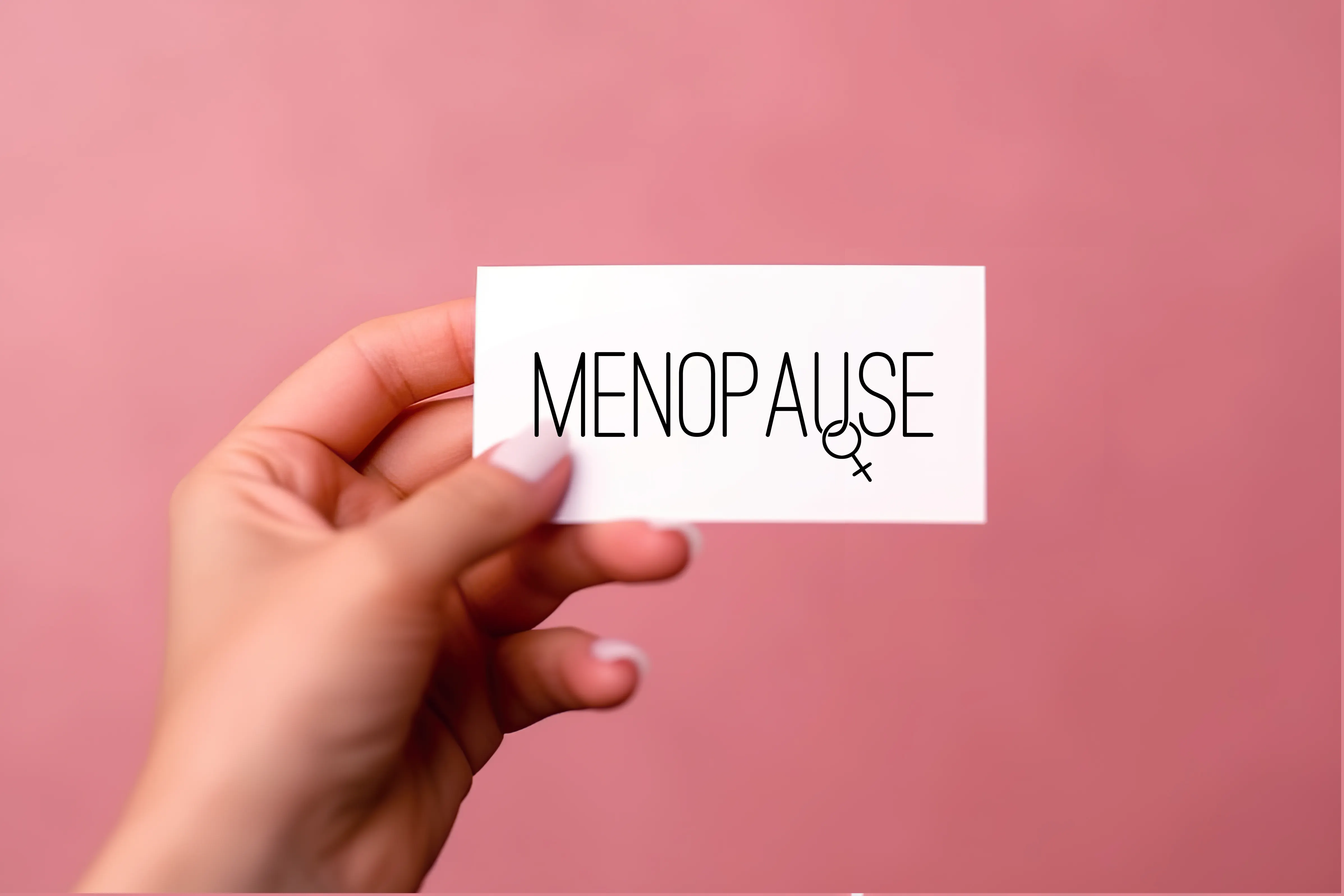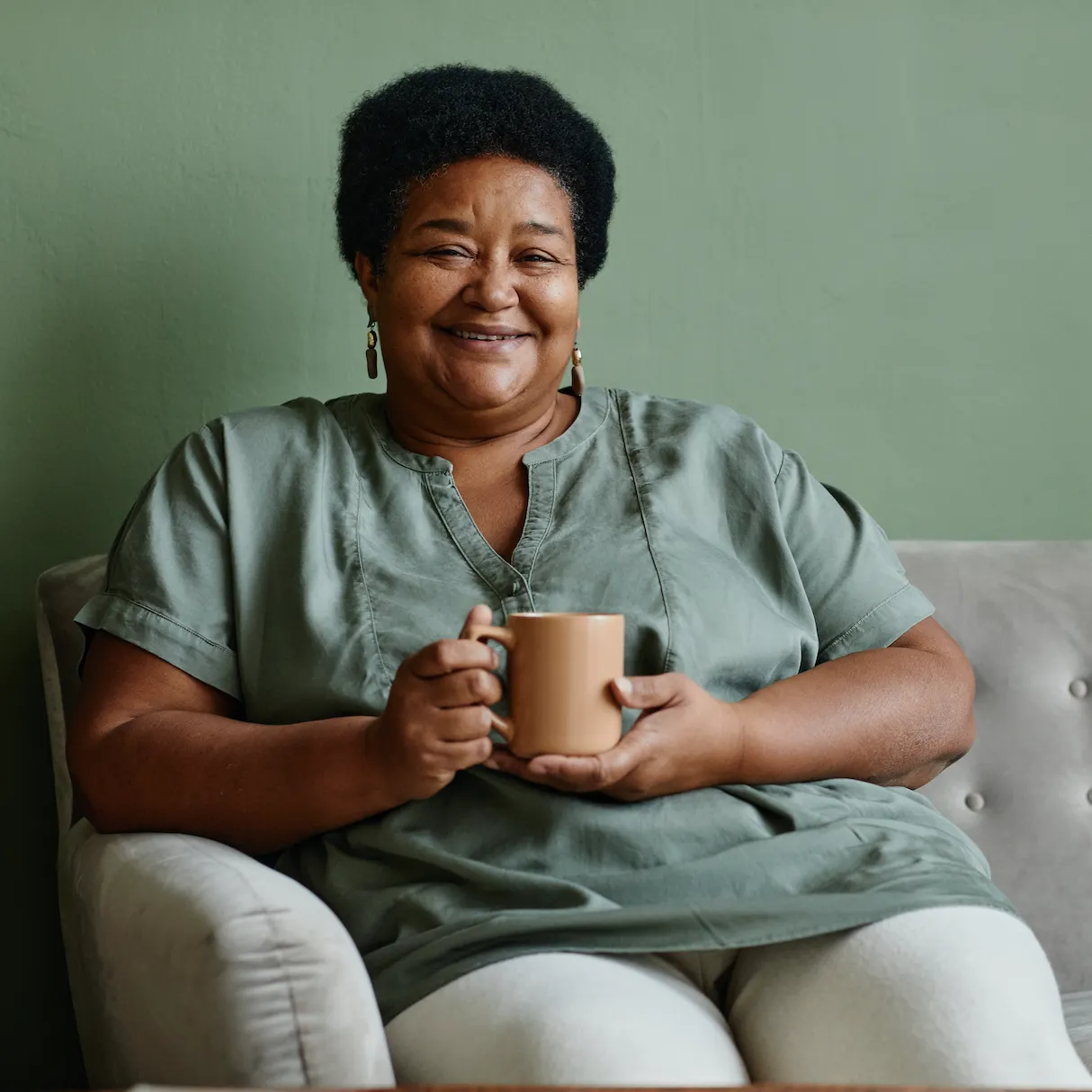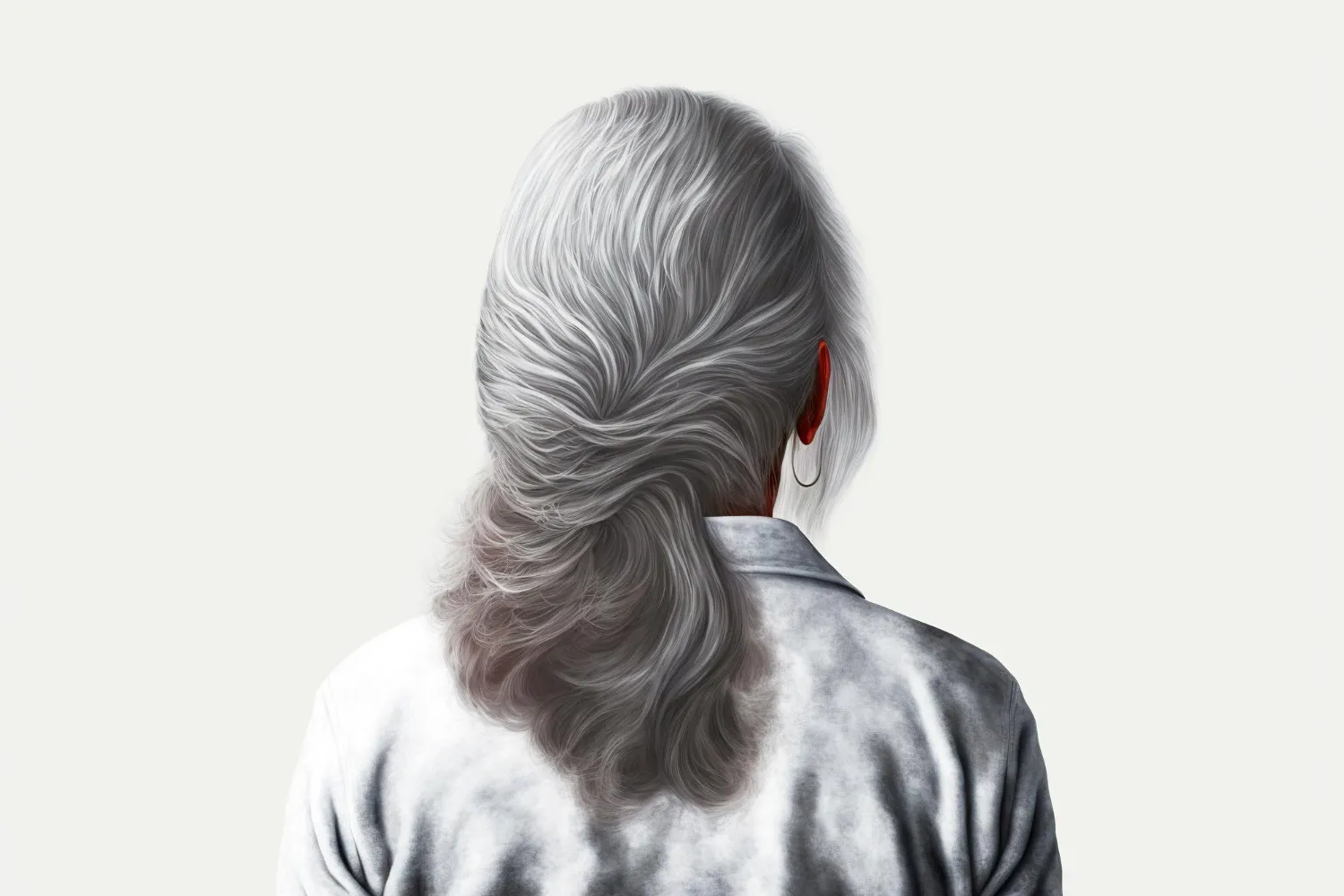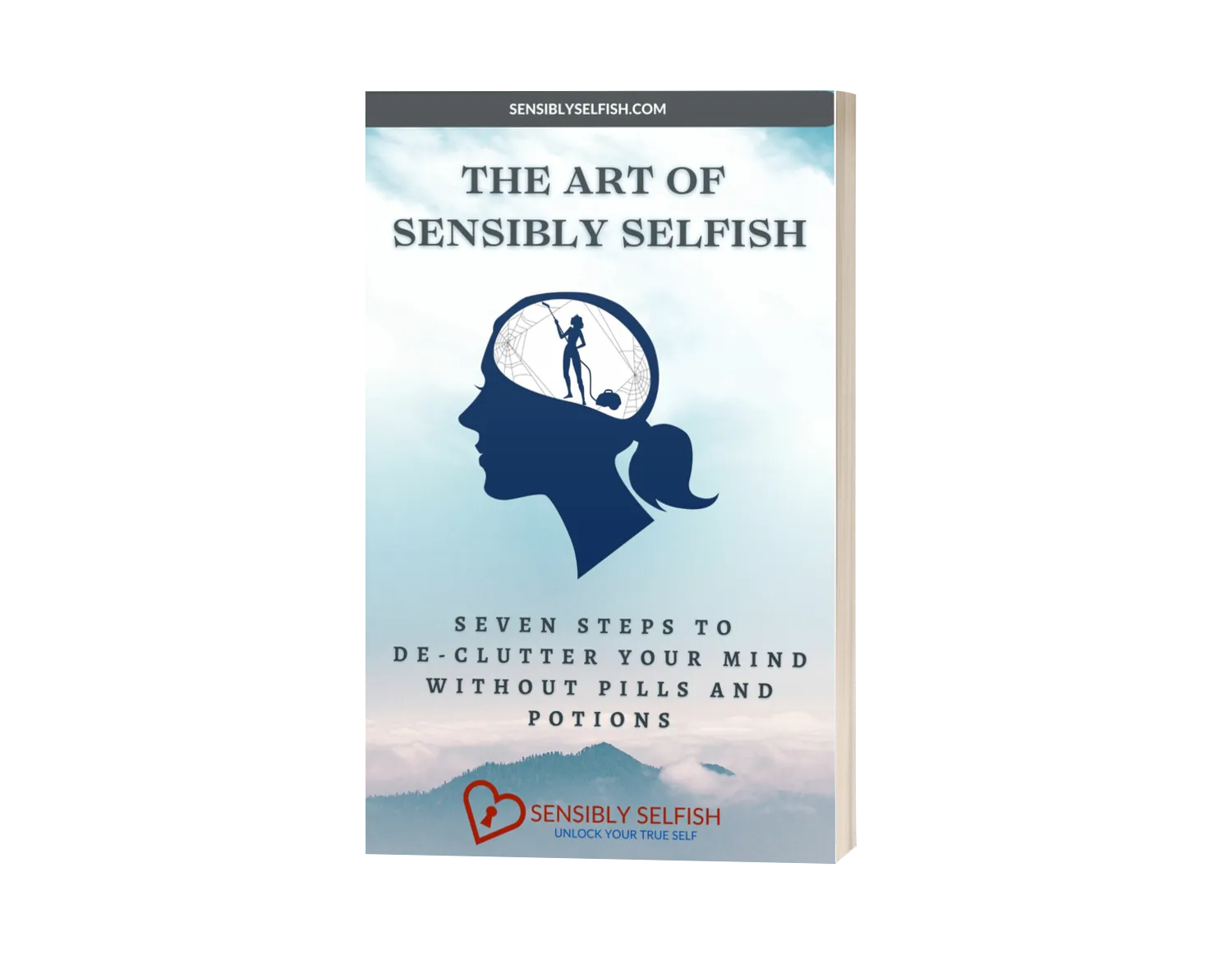A Menopause Conversation
Understanding Transition and Nurturing Well-being
[Toc]

Welcome to menopause!
A natural phase marking the end of a woman's reproductive years. Understanding what menopause is, how it differs from peri-menopause, recognizing its indications, and learning effective coping strategies can empower women to embrace this new chapter of life with grace and vitality. In this article, we will explore the definition of menopause, distinguish it from peri-menopause, discuss common indications, and provide practical steps to nurture well-being during this transformative stage.
What is Menopause?
Menopause is a natural biological process that signifies the end of menstruation and fertility in a woman's life. It occurs when the ovaries cease to release eggs and there is a significant decline in the production of estrogen and progesterone (the hormones responsible for regulating the menstrual cycle). Typically, menopause is after 12 consecutive months without a menstrual period.
Menopause vs. Peri-Menopause - Understanding the Difference
Peri-menopause is a life phase characterized by hormonal fluctuations, irregular periods, and various symptoms, while menopause signifies the permanent cessation of menstruation. Menopause marks a new stage, requiring adaptation and self-care strategies tailored to this specific stage.
During the peri-menopause stage, women may experience a combination of symptoms related to hormonal fluctuations, and some indications may continue throughout menopause and beyond.

Indications specific to Peri-Menopause
Changes in the menstrual cycle
Periods may become irregular, with duration, frequency, and flow differences. Women may experience shorter or longer cycles, skipped periods, or changes in the intensity of menstrual bleeding.
Hormonal fluctuations
Fluctuations in estrogen and progesterone levels during peri-menopause can contribute to various symptoms such as hot flashes, night sweats, mood swings, and changes in libido.
Indications commonly experienced during Peri-Menopause and Menopause
Hot flashes and night sweats
Sudden, intense waves of heat, are often accompanied by excessive sweating. Hot flashes can disrupt daily life and disturb sleep patterns.
Vaginal and urinary changes
Declining estrogen levels can lead to vaginal dryness, itching, discomfort during intercourse, and an increased risk of urinary tract infections. These symptoms can manifest during peri-menopause and continue into menopause.
Sleep disturbances
Hormonal imbalances during peri-menopause and menopause can disrupt sleep patterns, leading to difficulties falling asleep, staying asleep, or experiencing restful sleep. Sleep disturbances can have a significant impact on overall well-being.
Mood changes and emotional well-being
Hormonal fluctuations during peri-menopause and menopause can contribute to mood swings, irritability, anxiety, sadness or depression. Emotional well-being and self-care are aspects of managing these symptoms.
Physical changes
Both peri-menopause and menopause hormonal fluctuations can bring physical changes such as midriff fat gain, joint pain, thinning hair, and less skin elasticity.
Please note that the onset and duration of these indications can vary among women. Some women may experience mild symptoms, while others may face more significant challenges. Understanding each natural stage can help women differentiate between peri-menopause and menopause and seek appropriate support and strategies for symptom management. Consulting with healthcare professionals can provide personalized guidance and ensure a smoother transition through these stages.

Cultural Menopause Differences
The way different cultures cope with menopause can be due to social, cultural, and environmental factors.
Cultural Beliefs and Attitudes
Cultural beliefs and attitudes surrounding menopause play a significant role in shaping how menopause is perceived and experienced. Cultures that view menopause as a natural and normal life transition rather than a medical problem may foster a more positive and accepting attitude towards this stage. Societies that value and respect older women may provide a supportive environment for women entering menopause.
Social Support Networks
The presence of strong social support networks can impact how women navigate menopause. Cultures with communal living, intergenerational support, and close-knit family structures may provide a built-in support system for women during this transition. Supported women can feel understood, validated, and less isolated.
Education and Awareness
Access to education and awareness about menopause and its associated changes can empower women to understand and prepare for this life stage. Cultures that prioritize education and provide comprehensive information about menopause may equip women with knowledge and resources to cope effectively. When women know what to expect and understand menopause, they are better prepared to manage its challenges.

Traditional Healing Practices
Some cultures have well-established traditional healing practices that incorporate natural remedies, herbal medicines, and holistic approaches to managing menopausal indications. These practices, such as herbal teas, acupuncture, or traditional medicine, may provide women with additional options for symptom relief and support their overall well-being during menopause.
Societal Views on Aging
Societal attitudes towards aging can influence how menopause is perceived and experienced. Cultures that value and respect older individuals, considering them a source of wisdom and experience, may foster a positive perception of menopause. In contrast, societies that associate aging with negative stereotypes and view menopause as an illness may contribute to more negative experiences and coping challenges.
Healthcare Systems and Access to Treatment
Healthcare systems and access to medical care that offer menopause-related services, such as hormone replacement therapy and counseling can impact how women cope with menopause.
While certain cultures may exhibit more positive coping mechanisms, it's essential to recognize that individual experiences can vary widely within any cultural context. Moreover, societal attitudes and coping strategies related to menopause are not fixed and can evolve.

Mums and Grandmother’s Menopause
There are several possible reasons why our mothers and grandmother's menopause was different than Western women's today. It's important to note that these are general observations and individual experiences may vary:
Less Stigma
In the past, there may have been less stigma associated with menopause. Women were more likely to have knowledge and awareness from a young age through cultural norms and conversations within their extended families. This awareness and acceptance could contribute to a positive attitude and better coping strategies.
Stronger Social Support Networks
Traditional family structures and communal living were more common in the past. Women often lived in close-knit communities and had access to emotional support from family, friends, and neighbors. intergenerational relationships and shared experiences provided a support system during menopause, fostering understanding, empathy, and guidance.
Clear Life Roles and Expectations
Traditional gender roles and societal expectations may have provided a framework for women's lives, including their roles as mothers and caregivers. Defined roles and responsibilities may have provided a sense of purpose, continuity, value and fulfillment during menopause.
Active Lifestyles and Physical Labor
In the past, daily life often involved more physical activity due to household chores, manual labor, and limited modern conveniences. Obesity and related illnesses were not as prevalent. Regular physical activity and engagement in routine tasks could have a positive impact on overall well-being, and physical health, and therefore potentially alleviate menopausal symptoms.
Different Dietary and Lifestyle Factors
Traditional diets and cultural practices may have included foods and lifestyle habits that naturally supported women during menopause. For example, diets rich in whole foods, and plant-based ingredients. Traditional remedies would have incorporated specific herbs or foods believed to support hormonal balance and overall health.

Less environmental toxicity
The increased exposure to various chemicals and environmental pollutants may contribute to the higher prevalence of menopausal symptoms experienced by women today. Chemicals found in everyday products, such as pesticides, plastics, and synthetic hormones, can disrupt the delicate hormonal balance in the body. These endocrine-disrupting chemicals (EDCs) mimic or interfere with the body's natural hormones, potentially amplifying menopausal symptoms.
Additionally, certain chemicals may accumulate in our bodies over time, affecting overall health and hormonal regulation. Although research is ongoing, it is plausible that the widespread presence of these chemicals in our environment may play a role in the increased burden of menopausal symptoms in modern times. Understanding and minimizing exposure to harmful chemicals can promote hormonal health and potentially reduce the severity of menopausal symptoms.
Different Perspectives on Aging
Cultural attitudes toward aging have evolved. In the past, positive views of aging, and respect for older women for their wisdom and life experiences. This positive perception of aging could influence how menopause was perceived and experienced, potentially leading to better coping strategies.
Societal and cultural contexts have changed significantly, and women face different challenges and expectations today. While our mothers and grandmothers may have coped better in some aspects, they also had struggles. Understanding and adapting to the current cultural context can help women today develop effective coping strategies and support networks tailored to their specific needs.

Every Woman is Unique
Menopause signifies a transformative phase in a woman's life, and understanding its definition, differentiating it from peri-menopause, recognizing indications, and adopting effective coping strategies can empower women to navigate this stage with resilience and vitality. Embracing menopause as an opportunity for self-care, and personal growth, and celebrating the wisdom and experience gained over the years can lead to a fulfilling and vibrant post-reproductive phase. Every woman's menopause experience is unique, so embracing personalized strategies and seeking support are essential for nurturing well-being and embracing the beauty of this new chapter.









